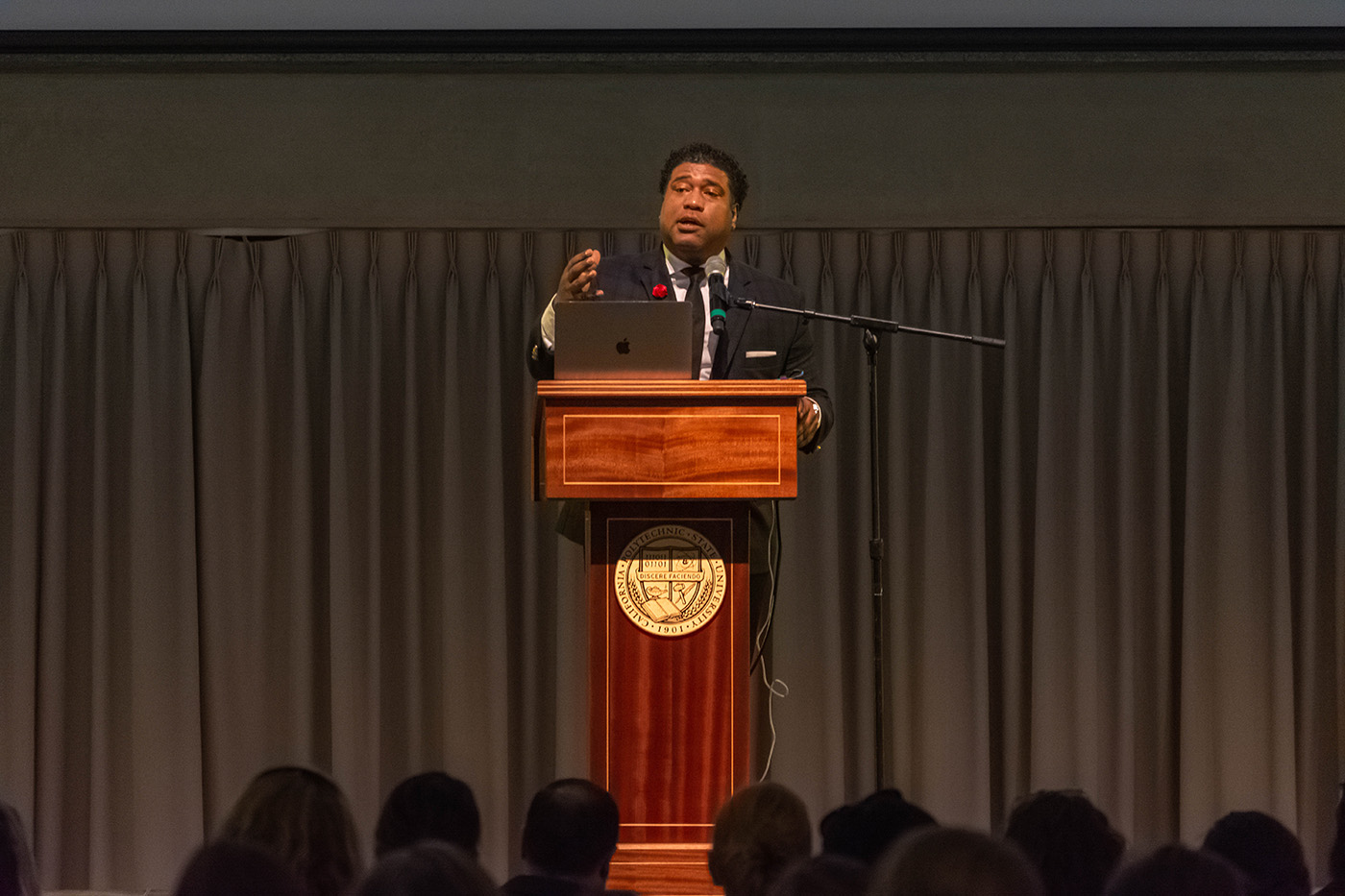Cal Poly released the results of the Cal Poly Experience (CPX) survey Thursday, Oct 17 in the Recreation Center Multi-Activity Center as part of the university’s $243,000 partnership with diversity expert Damon Williams.
The data showed that minority individuals across many backgrounds and identities — including women, LGBTQIA folks, disabled persons, financially challenged persons and members of underrepresented ethnic and racial backgrounds — have negative experiences on campus and do not feel a strong sense of belonging and a sense of community. The data showed it is most difficult for Black students to feel positively about their sense of belonging and community.
“The statistics pull that out,” Armstrong said. “The data is all lining up and helping us better understand, so we can hopefully get better.”
The announcement kicked off the second phase of the university’s diversity and inclusion initiative that began February 2019.
Williams and his team analyzed the CPX results to provide recommendations for the university in its effort to create a diverse and inclusive campus. Cal Poly President Jeffrey Armstrong said the data also helps the university better understand the experiences individuals are having on campus.
“What we’ve known — and what now is really clearly delineated — is that for students that are in groups that are marginalized … it’s sometimes very difficult,” Armstrong said.
“What we’ve known — and what now is really clearly delineated — is that for students that are in groups that are marginalized … it’s sometimes very difficult,” Armstrong said. “There’s some really good data that Damon has that shows differences among the groups.”
The results reflect responses from nearly 11,000 students, faculty and staff. According to the CPX Final Report, 41 percent of students took the survey. An additional 61 percent of faculty and 60 percent of staff participated. Williams said that this response rate is successful in comparison to similar studies.
“That’s an incredible commitment to want to have your voices heard — and in having your voices heard — wanting to be part of a change effort to get better,” Williams said. “I think it was a real powerful step for [Cal Poly] to have such an incredible response rate.”
What the data showed
Individuals from all demographic groups responded that the campus climate could be better. However, Williams said it was unique for white students, faculty and staff to recognize that there are challenges in regards to diversity and inclusion on campus.
“Students across the board were recognizing that there’s some challenges in terms of diversity-related issues, but inside of that, there’s still some differences,” Williams said. “Students of color generally had a stronger take on the climate than did other communities.”
Armstrong said he hopes the results of the survey will help facilitate discussions surrounding diversity and inclusion starting at the department level.
What happens next?
In an email to Mustang News, Vice President for Diversity and Inclusion Jozi De Leon wrote that the university will hold three dialogue sessions to discuss the results and the recommendations Williams gave.
“We will provide individuals with some guiding suggestions for how to engage in those discussions and make them inclusive and non-threatening,” De Leon said.
Cal Poly will develop a series of action plans this fall and into early 2020, according to a news release. According to De Leon, the ultimate goal is to develop a five-year plan to address the recommendations given by Williams.
“Our work will also include the integration of what we already are in the process of doing that pertains to the recommendations and how we build a plan for what we are not yet addressing,” De Leon said.
The university will also determine how to further support programs focused on diversity, such as training programs, the Cal Poly Scholars program and diversity cluster hiring practices, according to a news release.
Students, faculty and staff were encouraged to take the survey beginning April 9, 2019, as well as participate in listening sessions in March. The data collected describes the perceived campus climate as told through the experiences of the campus community.
Williams shared the results in a keynote address to kick off the Strategic Diversity Leadership Institute. The institute is a two-day conference-style event to help community members understand the results and how the data will be used on campus to further diversity and inclusion efforts.
Williams said Cal Poly’s data is similar to other institutions he has worked with, but he said Cal Poly can be different in how they use the data.
“The thing that I am probably most hopeful for is that I see a very similar commitment to the journey from here forward as the journey it took to get the data,” Williams said. “I feel a deep sense that there’s not only a desire to have the data but to use the data for inclusive purposes at this university.”

